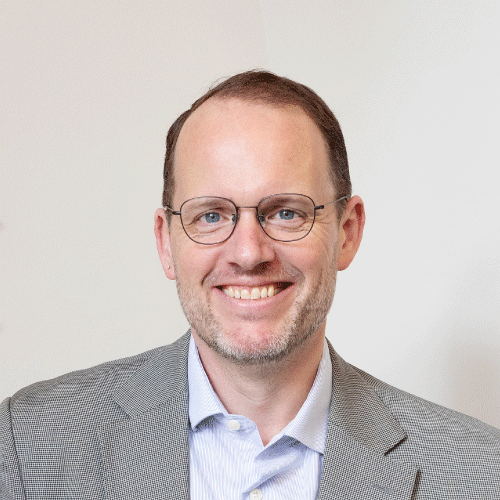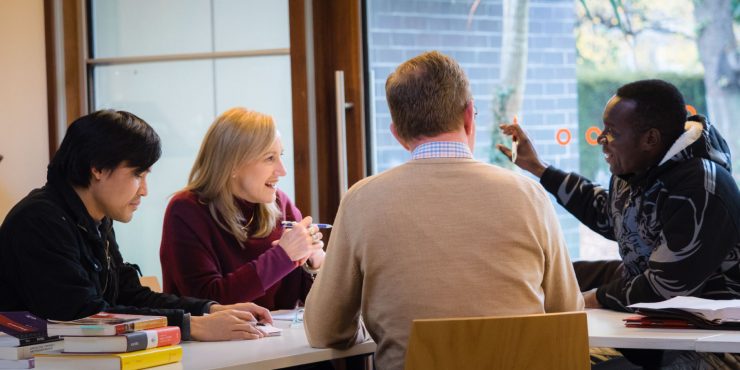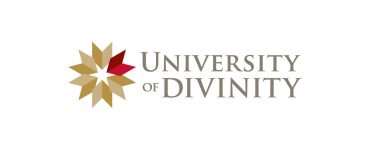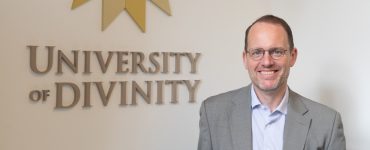Federal Parliament this week has been debating legislative reform of religious exemptions to anti-discrimination legislation. This is the latest episode in Australian society’s renegotiation of the balance of human rights related to religion, gender and sexuality, highlighted by last year’s changes to Australian marriage law.
The leaked recommendations of the Ruddock review of religious freedom have raised public concerns about two issues: the protection of the freedom of religious educators to teach from moral traditions that differ to current Australian law, and the protection of LGBT students and teachers from sexual discrimination in religious schools.
The bills before Parliament, however, would affect not only religious primary and secondary schools but also faith-based universities and colleges. This has caused consternation in parts of Australia’s theological education sector. What would happen if theological colleges were prevented from excluding students on the basis of gender identity or sexual behaviour, or if students or others were able to mount complaints that the content of courses was discriminatory?
The University of Divinity has over 100 years’ experience negotiating religious differences. Its tradition provides wisdom to guide current debates.
Our Act of Parliament, created in 1910, prohibits the University from administering a religious test to its students. This means students must not be required to sign a statement of faith at admission, or to arrive at a predetermined opinion in the course of their studies and examinations.
This restriction, originally designed to ensure that one religious group was not favoured over another, has become an integral part of the University’s identity. Students are free not only to form a critical understanding of faith (whether their own or that of others), but also to dissent from Church teaching. Students must be assessed not on the alignment of their judgments with the doctrinal requirements of a religious body but on the academic merit of their arguments, including the use of evidence, the application of reason, and their engagement with different views.
In more recent years the “no religious test” rule has been extended within the University’s own regulations to ensure that students are not refused admission on a wide range of grounds, including gender or sexuality.
This reform has become a vital part of the University’s capacity to provide high-quality education to all of its members. While most of the University’s students would claim to be Christians, they come from a bewildering variety of denominational backgrounds. Teaching the European Reformation to a classroom comprised of Protestants and Catholics, for example, is now an everyday occurrence that was all but unimaginable a century ago. This transforms the learning experience. Differences are encountered in the context of personal relationships, opening up the possibility of reconciliation and healing of centuries-old wounds.
Furthermore, there have always been a few students of other faiths or of no faith. They have brought wider perspectives and fresh questions which can lead to deeper insights for all participants.
The University has actively nurtured this diversity through two primary commitments. First, in its formal agreements the University undertakes to “maintain academic freedom, including respect for the integrity and diversity of Christian theological traditions represented in the Colleges of the University”. This does not mean assent or agreement to different beliefs, but simply understanding and acknowledging that the view of another person or tradition is held with integrity in good conscience. Moreover, these Christian theological traditions are not so fragile that they cannot withstand the scrutiny or challenge of a diverse student body.
Second, the University’s relationship with its students is mutual. The University undertakes to provide an outstanding education in theology, inviting critical understanding of beliefs and practices, the discovery of new knowledge and the development of professional skills. Students undertake to apply themselves to their courses of study, aiming to achieve the learning outcomes of each award or subject. Our hope is that they will do so with passion, even joy.
Thus, a Lutheran student can enrol for a subject in Anglican spirituality, a Jewish student can take a ministry preparation award, or an agnostic student can graduate with a Master of Divinity. In each case, the student is invited to form a critical response to a diverse range of subject materials.
Nurturing diversity is never easy. Creating a culture in which there is freedom to dissent may be costly. What happens when a female student experiences a call to ministry, but is studying at a College that prepares students for ministry in a church which does not ordain women? When someone in a same-sex marriage enrols in a subject which examines why a particular church permits marriage only between people of the opposite sex? When a member of academic staff must present content with which they personally disagree?
The answer lies in the pursuit of critical understanding. Some of our students will be required to assent to the moral teaching of their churches when they are ordained as clergy. However, all of our students will develop a critical understanding of that teaching, regardless of whether or not they agree with it in the end. This is good for everyone. The prophet or rebel has the opportunity to develop a different point of view, resourcing them for a lifelong spiritual journey, calling our nation, our society, and even our churches to account. The seminarians who have had to reappraise their beliefs and assumptions are equipped to give informed assent at ordination and serve the communities to which they are sent for ministry.
Embracing diversity, with critical understanding, ensures that every student, whatever their faith, gender or sexuality, is encouraged, challenged and empowered to contribute to theological scholarship and ministry practice.
In light of this century-old tradition, I welcome the proposed reform of religious exemptions to anti-discrimination legislation to protect LGBT students and teachers from discrimination.

Emeritus Professor Peter Sherlock was the Foundation Vice-Chancellor of the University of Divinity from 2012-2024. He is a cultural and religious historian of Renaissance and Reformation Europe and an expert on governance and leadership in educational and church settings. A graduate of the University of Melbourne and the University of Oxford, his academic career has included an ARC Postdoctoral Fellowship in History at the University of Melbourne and four years as Dean of the United Faculty of Theology, Melbourne.






Wonderful Peter. Thank you so much. I am so proud to be associated with the University and the intellectual tradition expressed so well here.
This is very well expressed, Critical understanding is indeed good for everyone.
Another point that could be made is that restrictions simply do not work anymore. Perhaps as a teacher of the European reformation this Peter would know this better than anyone.
Any attempt to stifle dissent within the classroom, when based on a genuine attempt to engage critically with the subject matter, would fail. Neither students nor academics would adhere to a religious or gender veto.